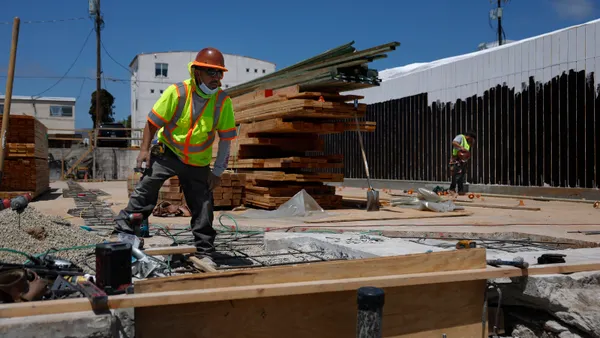Dive Brief:
- Tesla and Vermont utility Green Mountain Power have partnered to offer backup battery power to residential customers for just $15 per month, less than half the cost of a similar pilot the utility ran two years ago.
- The price drop comes from improvements in battery capacity and energy output, Greentech Media reports, along with control software developed by SolarCity to help provide grid benefits.
- The Powerwall 2 units will be offered to up to 2,000 customers, and could help reduce peak load by 10 MW— the equivalent to taking an average of 7,500 homes off the grid.
Dive Insight:
Tesla continues to improve its Powerwall battery and leverage its purchase of SolarCity by using the solar installer's GridLogic software to bolster the value of energy storage.
GMP’s Director of Generation and Renewable Innovation Josh Castonguay told Greentech that the new offering is “twice the energy, and almost twice the power" over Tesla's first Powerwalls, "at almost the same cost. Right there, you've doubled your value stream for about the same price.”
A pilot program run with Tesla's first Powerwall incarnation in 2015 cost customers $37.50/month. Now Green Mountain Power said the systems will supply whole-home energy needs for up to 12 hours, and supply 5 kW continuous, or 7 kW peak demand. And the utility explained that it will partner with customers "to directly lower costs for customers by reducing transmission and capacity costs."
The companies say the aggregated Powerwall batteries will provide a variety of grid services, delivering "dynamic capacity (energy reserves that can be dispatched when they are needed most) and additional grid stability." Tesla will also work with Green Mountain Power to dispatch the aggregated resource into New England’s wholesale electricity markets.
Tesla announced mass production of battery cells at its Nevada Gigafactory earlier this year, including cells that will be used in the Powerwall 2 and other applications. By next year, the Gigafactory plans to produce 35 GWh/year of lithium-ion battery cells. Last year, shareholders approved Tesla Motors' $2.6 billion acquisition of SolarCity, which was key for the company's solar roof plan to move ahead.












